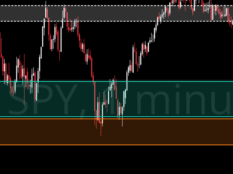The Art Of Trading
I’m Meta Matt, Director of Education and welcome to PB University LITE! This is a 50 Class Trading 101 Series geared towards both new and veteran traders alike! We go over everything from Trading Psychology, Technical Analysis, and Options Trading to Commodity Trading, Forex, and more!! This 50 Class series is not designed be taken in order, it is instead designed for traders to browse and pick which classes interest them. I will include the list of classes at the bottom of this page.
Start Trading With Webull: Free Stock Shares
Custom Trading Indicator DISCOUNT: Try StocksBuddy Today
Get A Trading Coach, Premium Alerts, Education, and Community:
1 Month Membership
90 Days (Save 10% Per Month)
1 Year (Save $279)
The commander I'm talking about is none other than Sun Tzu, a legendary strategist from ancient China who wrote the classic book on military tactics, "The Art of War." You might be wondering what this has to do with trading stocks, but bear with me. As we'll see, many of the principles Sun Tzu used can be applied to trading as well.
Sun Tzu lived in a time of constant warfare, when various states vied for power and territory in China. He was a master of strategy and tactics, and his book remains one of the most influential works on military theory to this day. But what can he teach us about trading in volatile markets?
First, let's consider one of Sun Tzu's most famous quotes: "All warfare is based on deception." At first glance, this might seem like an odd thing to say in the context of trading. After all, isn't trading supposed to be about transparency and honesty?
Well, yes and no. On the one hand, it's true that trading should be conducted fairly and ethically. But on the other hand, there's no denying that the stock market is a competitive arena, where everyone is trying to gain an advantage over their rivals.
In such an environment, it can be useful to adopt some of the tactics Sun Tzu suggests. For example, he advises commanders to deceive their enemies by appearing weak when they are strong, and strong when they are weak. This means that traders could benefit from hiding their true intentions and keeping their cards close to their chest. By doing so, they may be able to manipulate the market in their favor and avoid losses. So this is a common strategy used by unethical pump and dumpers or market manipulators. We’re not going to use their tactics, because we are traders not scammers. However it is important to keep in mind that there are a lot of people out there who are “bad actors”, doing exactly what Sun Tzu suggested, deceiving.

This is why it’s important to have a clear strategy in place, and to be disciplined in following it.
Sun Tzu emphasizes the importance of knowing oneself and one's enemy, and adapting one's tactics accordingly. Similarly, traders need to be aware of their own strengths and weaknesses, as well as those of the market. They need to be able to adjust their approach to the market as the market changes, and avoid emotional reactions to these sudden changes. There are certain catalysts or “strengths/weaknesses” of the market, such as Earnings, Stock Splits, and other events that Traders can become aware of not only the existence, but also how it affects the market.
Another key aspect of Sun Tzu's teachings is the concept of "winning without fighting." This might seem paradoxical in the context of warfare, but it makes perfect sense in the context of trading. Essentially, what Sun Tzu means is that the best way to win is not necessarily to make aggressive moves, but to outmaneuver your opponents through skill and strategy.
For traders, this might mean looking for opportunities to make small gains without taking on too much risk. It might mean being patient and waiting for the right moment to strike, rather than jumping into a trade impulsively. It might mean avoiding herd mentality and following one's own instincts instead.
In the end, the lesson we can learn from Sun Tzu and his "Art of War" is that trading, like warfare, is a complex and dynamic environment that requires careful planning, clear thinking, and adaptability. By understanding the principles of strategy and tactics, traders can improve their chances of success in volatile markets and minimize their losses.
But how exactly can we apply these lessons to our own trading strategies? Let's consider a few specific tactics that Sun Tzu might suggest for preserving our money in uncertain times.

One strategy is to diversify our investments. This means spreading our money across different stocks, sectors, and asset classes in order to reduce our exposure to any one risk. By diversifying, we can protect ourselves against sudden market shifts or company-specific issues that might negatively impact a single stock.
Another tactic is to use stop-loss orders. These are orders placed with a broker to sell a stock automatically if it drops below a certain price. By setting a stop-loss order, traders can limit their potential losses if a stock suddenly tanks.
A third strategy is to pay attention to market indicators and technical analysis. By tracking trends, patterns, and other data, traders can spot potential risks or opportunities before they become obvious to everyone else. This can help traders make more informed decisions and avoid making impulsive moves based on emotion or gut instinct.
These are just a few examples of the kinds of strategies that traders can use to preserve their money in volatile markets. Of course, there's no one-size-fits-all approach, and every trader will need to find their own balance of risk and reward. But by studying the lessons of history and learning from the wisdom of great strategists like Sun Tzu, we can improve our chances of success and safeguard our financial futures.
In conclusion, trading stocks can be a challenging and unpredictable endeavor, especially in volatile markets. But by adopting some of the tactics and strategies espoused by military commanders like Sun Tzu, traders can minimize their risks and maximize their returns. Whether it's through diversification, stop-loss orders, technical analysis, or other methods, the key is to be disciplined, adaptable, and strategic. With these principles in mind, we can navigate even the most turbulent markets and emerge with our money intact.

PB University LITE Class List
1) Trading Terminology
2) Stock Market Indices
3) Common, Preferred, and Penny Stocks
4) Diversification of Assets
5) Fundamental Analysis Made Easy
6) Technical Analysis Made Easy
7) Risk Management In The Market
8) Portfolio Management
9) How To Follow Market News
10) Trading Psychology
11) Options Explained
12) The Greeks In Options Trading
13) How To Short Sell Options
14) Covered CALLS
15) Spread Trading
16) Online Brokers for Options Trading
17) Implied Volatility Calculators & Tools
18) Protective PUTS
19) Iron Condors
20) Straddles
21) Reading Level 2
22) Taxes
23) Trading Psychology Techniques
24) The Art Of Trading
25) Becoming A Jedi In The Stock Market
26) Futures Trading Explained
27) Commodity Trading 101
28) Regulatory Environments
29) How To Become A Millionaire
30) $100K In 100 Days
31) Wash Sale Rule
32) Behavioral Finance Part 1
33) Behavioral Finance Part 2
34) 5 Charting Indicators
35) Fair Value Gap
36) Insider Trading and Market Manipulation
37) Stock Chart Types
38) Moving Averages 101
39) Base vs Precious Metals
40) Electricity Trading 101
41) Trading Brokers 101
42) 5 Trading Strategies
43) 85% Trading Rule
44) Are Win Rates A Scam?
45) Futures Trading 101
46) ATR Indicator Strategy With The Greeks
47) MACD Indicator 101
48) Bollinger Bands Indicator 101
49) Wedges, Triangles, Flags and Pennants
50) RSI Divergence 101



